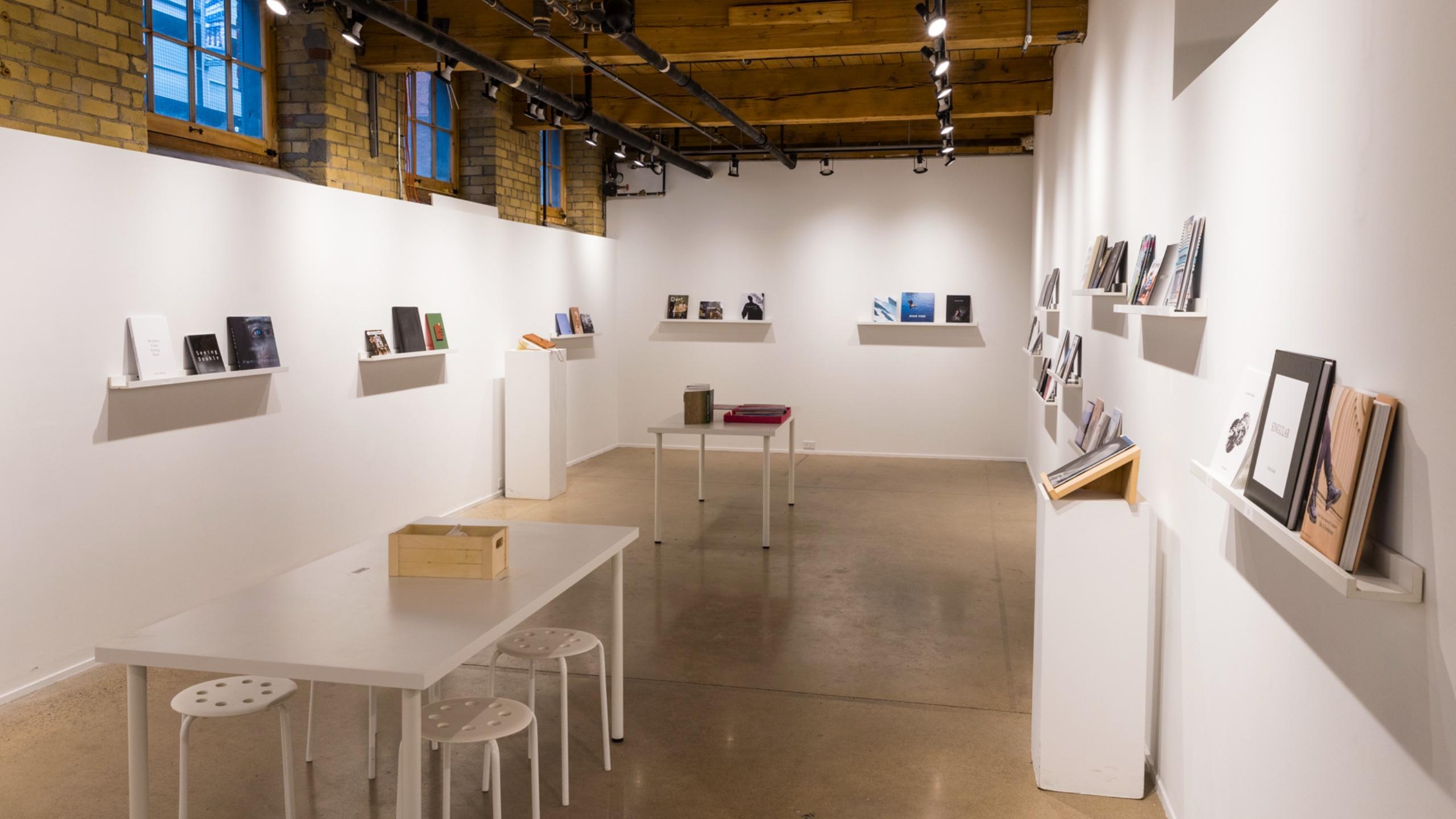By Julia Lawrence
In the Artspace Gallery, photobooks line the walls. Ranging in topics from a parent’s immigration to the K-pop group BTS, each book is a unique piece that reflects the various ways in which third-year School of Image Arts students at Toronto Metropolitan University (TMU) interpreted the theme of mapping.
These works are a part of the First Edition Photobook Exhibition, an annual exhibition in which the public can catch a glimpse of the emerging photographers at TMU.
Artspace described this year’s photobook theme on their website as “narrative, mapping, archives, contemporary portraiture, shifting landscapes and more,” which students have interpreted in their own ways.
When Cate Oxford heard about the theme, her mind immediately went to the idea of mapping inaccessible spaces within the city.
Her photobook, Sorry, You Can’t Get In, blends architectural photography of inaccessible spaces in Toronto alongside portrait photography of Oxford’s father and strangers who have physical disabilities that she met around the city.
Oxford’s father has multiple sclerosis, a slow-moving neurological disease. She has slowly seen the disease render him unable to walk, which is why she decided to incorporate the topic of inaccessibility into a project.
“I could kind of blend this personal side that I really know with this kind of architectural side that is so present in inaccessibility,” Oxford says. “So I was pretty excited because it just felt like a really good opportunity to map something that I feel like I really have a lot of knowledge about.”
Oxford says the “super real, very active” lives of people who are impacted by inaccessibility in the city are often forgotten when we have conversations about societal issues on a larger scale.
“We sometimes think of inaccessibility as something that we don’t have to worry about as much anymore but because I live with someone who lives in a wheelchair, it’s taught me to see all the holes in inaccessibility.”
Oxford says she hopes that her photobook encourages people to notice the small things that can make a space completely inaccessible for some people and that there’s still a lot of work left to do.
“It’s taught me to see all the holes in inaccessibility”
Oxford’s classmate Justynn Roque, narrowed down his photobook topic from toxic masculinity in Southeast Asian culture to the expectations in an immigrant family.
Roque’s photobook, Breathing Under Fucking Water, explores his relationship with his father and other family members through a past, present and future storyline.
“[My father] and I didn’t have a really good relationship back then, specifically during my university application year,” Roque says. He adds that this strain in their relationship continued as he started going to TMU.
“So using him as a subject in the book, photographing him…it was interesting because it was my first time photographing him,” Roque says.
He photographed his father around the house to show the environment in which Roque grew up and to illustrate the dynamic of family expectations that was at the root of his theme. Roque also photographed his extended family and the cousins he grew up with.
“Asian or immigrant parents in general always have to compare you to other kids. I’m sure a lot of us deal with that,” Roque says. He says growing up, he was always compared to his cousins who went into business, science or law, while Roque himself wanted to pursue something different. He says he would constantly be told ‘you’re never going to make it’ or ‘you’re never going to be successful.’
Roque adds that capturing that feeling through his photography really helped shape the photobook.
Working on Breathing Under Fucking Water became an opportunity for Roque to reconnect and build a stronger relationship with his father and family. His photobook portrays the struggle and emotion he went through to be where he is now.
“I was always told ‘You’re never going to make it, you’re never going to be successful'”
As a communications coordinator at the student-run Artspace Gallery, Roque recommends visiting the exhibition to support the work of him and his peers that they put a lot of effort into producing.
“We [at the gallery] express the hardships of being a student and putting out your work, so coming into Artspace, these are artists in progress, these students are the future of the creative industry.”













Leave a Reply